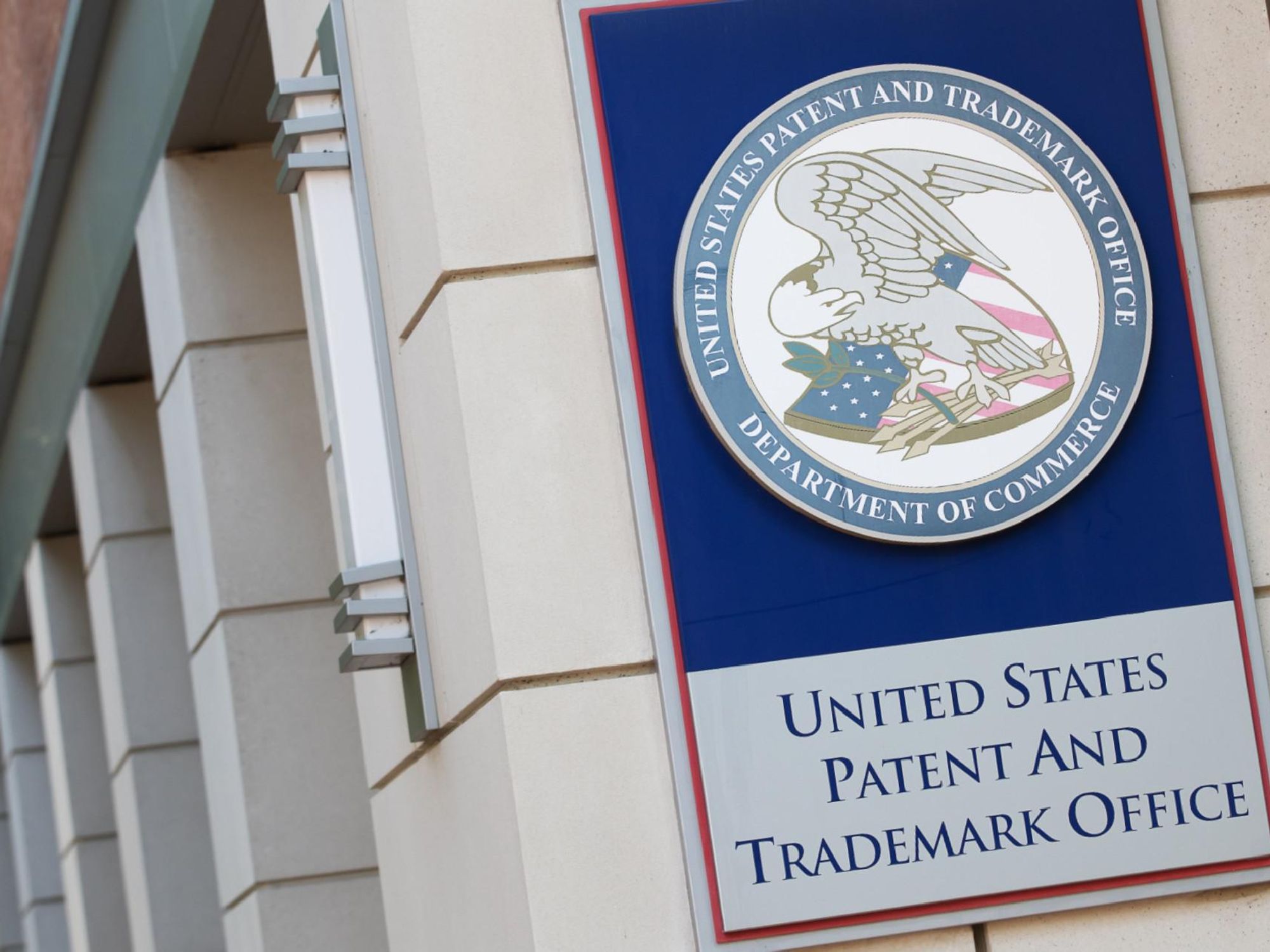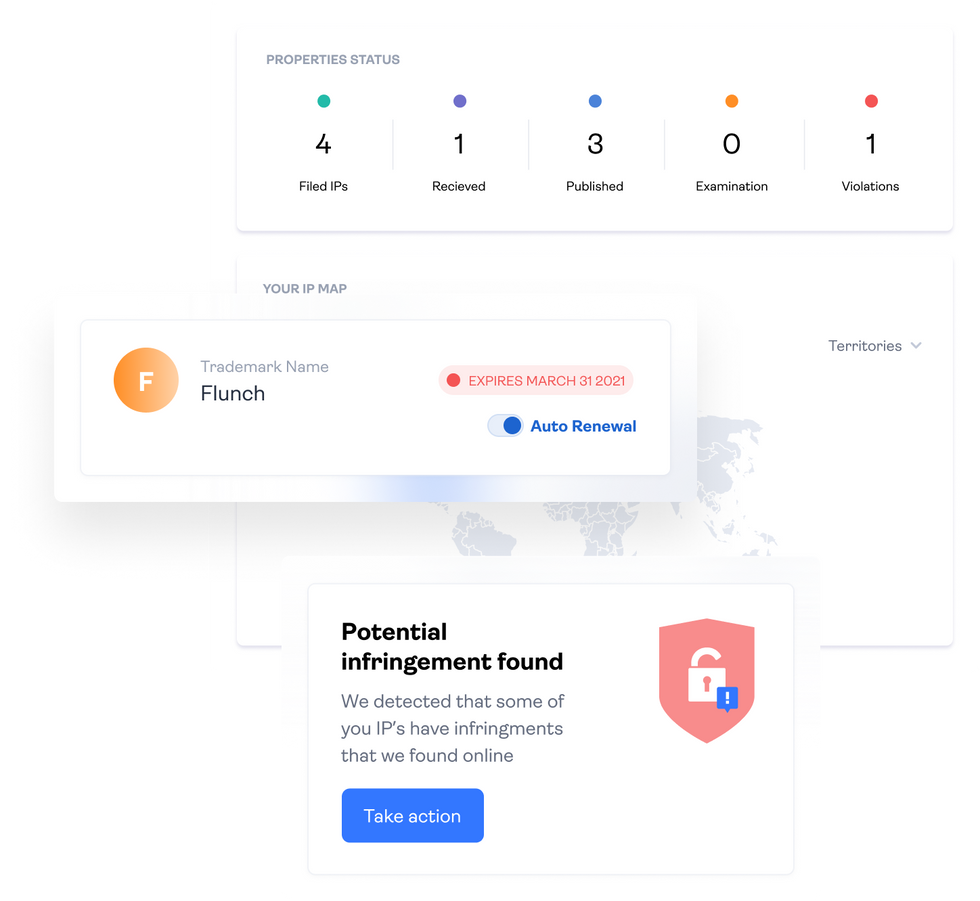Brainbase’s New Tools Let You Automate Your IP Lawyer. But Is It a Good Idea?
Sam primarily covers entertainment and media for dot.LA. Previously he was Marjorie Deane Fellow at The Economist, where he wrote for the business and finance sections of the print edition. He has also worked at the XPRIZE Foundation, U.S. Government Accountability Office, KCRW, and MLB Advanced Media (now Disney Streaming Services). He holds an MBA from UCLA Anderson, an MPP from UCLA Luskin and a BA in History from University of Michigan. Email him at samblake@dot.LA and find him on Twitter @hisamblake

The legal services industry has long been seen as slow to innovate. Two new products that interface directly with the U.S. Patent and Trademark Office aim to change that. Both are produced by intellectual property (IP) startup Brainbase.
File, one of those new products, applies to the beginning of a trademark's lifecycle, aiming to help companies apply for trademarks with the USPTO. Using AI and an API that plugs into the patent office's database, the technology searches the federal agency's data to ensure trademark availability, selects the proper classification among 45 options and completes the filing process.
The service is available to the first 2,000 users for a one-time fee of $199. That's on top of the $250 filing fee per registration with the USPTO. Hiring a lawyer to complete the trademark filing process can run several thousand dollars.
Brainbase's other new product, Vault, allows companies to import their trademarks – or a competitor's – from the USPTO into a dashboard. For a small monthly fee, users can track whether similar filings that may infringe on those trademarks enter the agency's data system, and can automatically trigger a cease-and-desist letter.
The two new products follow on the startup's beachhead product, Assist, which is already used by Buzzfeed, BBC and Sanrio among others to track the financial performance of their trademark portfolios and identify new exploitation opportunities.
Founded by mid-20s serial entrepreneur Nate Cavanaugh, Venice-based Brainbase sees itself as a technological disruptor of the stodgy IP space. The company has previously raised $15 million to automate intellectual property management, and was nominated one of L.A.'s hottest startups, according to the panelists in dot.LA's VC sentiment survey.

A screenshot of Brainbase's new Vault tool.
Image courtesy of Brainbase
The company's goal is to create an end-to-end suite of software that enables companies to manage the entire lifecycle of a trademark.
"To my knowledge this is the first trademark analytics offering that I've seen," said patent attorney Chris Palermo, who's worked extensively with startups in L.A. and Silicon Valley.
But, he cautions, relying exclusively on automated legal services could create more trouble than it's worth. In particular, sending a cease-and-desist letter without doing research may leave some companies wishing they'd ponied up for advice from a professional.
"Before you actually sign and send one of those, there's a lot you've got to think about," Palermo said. "For example, dispatching a strongly worded letter to another party may create declaratory judgment jurisdiction for that party, where they can sue you first."
Brainbase doesn't suggest its software should replace every company's legal team. In some cases, it highlights how it can help in-house lawyers work with other teams more effectively.
"We are unlocking this black box that is typically the domain of the lawyers and the legal team inside a company, and making the information easily accessible to anybody in the company: marketing, sales, HR," said chief product officer Gautam Godse.
"That allows for the revenue-driving folks and the legal folks to be on the same page," added communications director Greg Holtzman.
Making headway with companies that may wish to add visibility to their trademark portfolios outside the legal team could ruffle some feathers, however.
"They may see some pushback from in-house legal departments because, to some extent, this could threaten the business case for having a larger in-house practice," Palermo said.
Brainbase's new products took nine months to develop and were completed by a team of 15 developers, designers and product managers.
Now that it can offer end-to-end trademark services, Godse said Brainbase will look to expand into other countries, then to other forms of IP, starting with patents before moving to copyrights.
The company declined to disclose figures on its revenues or valuation.
- Brainbase Beefs Up C-Suite; Headspace Adds Former Quickbook ... ›
- Brainbase CEO Nate Cavanaugh on Striking Out as a Young CEO ... ›
- Meta Software Moves Its Data SaaS Operations to LA - dot.LA ›
Sam primarily covers entertainment and media for dot.LA. Previously he was Marjorie Deane Fellow at The Economist, where he wrote for the business and finance sections of the print edition. He has also worked at the XPRIZE Foundation, U.S. Government Accountability Office, KCRW, and MLB Advanced Media (now Disney Streaming Services). He holds an MBA from UCLA Anderson, an MPP from UCLA Luskin and a BA in History from University of Michigan. Email him at samblake@dot.LA and find him on Twitter @hisamblake





 Image Source: Skyryse
Image Source: Skyryse